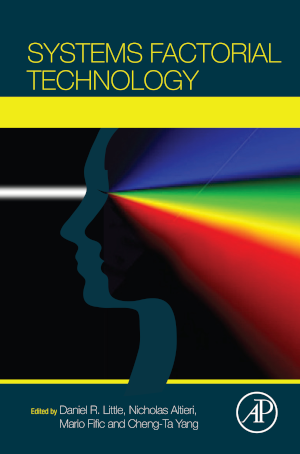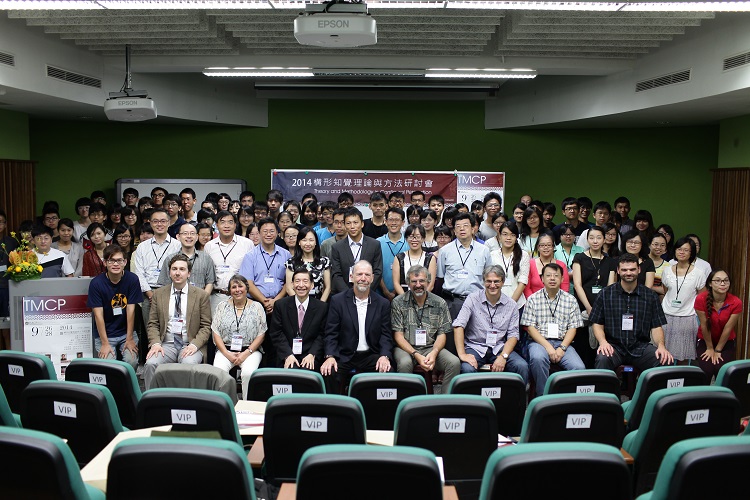
Our main research interests center on developing a process-tracing approach that allows for the precise determination of rigorously defined properties fundamental to the mental processes that underlie cognitive actions. Much of Professor Fifić's research has been focused on the development of a highly diagnostic and sophisticated methodology for uncovering mental architecture, known as the systems factorial technology (SFT). His work as a research scientist at the Center for Adaptive Behavior and Cognition, at the Max Planck Institute for Human Development, has aimed to apply process-tracing techniques in the area of complex decision making. The work thus far has involved validation, theoretical refinement, extensions, and further application of SFT.
In the summer of 2020, a paper Mario worked on with friend and frequent collaborator Cheng-Ta Yang was awarded the R. Duncan Luce Outstanding Paper Award for the most outstanding paper published in the Journal of Mathematical Psychology. Here at DecideLab we are all proud to be working with a Professor who is operating at the forefront of the already cutting edge field of Mathematical Psychology.
 In 2019 NSF awarded Professor Fific funding for his research into the fundamental cognitive properties underlying decision-making
(SES-1854762 & 1854763) PI: Mario Fifić, Co-PI: Joseph W. Houpt, Title: Collaborative Research: “Determining the Fundamental Cognitive Properties of Decision Making, 2019-2022 [$366,880]
In 2019 NSF awarded Professor Fific funding for his research into the fundamental cognitive properties underlying decision-making
(SES-1854762 & 1854763) PI: Mario Fifić, Co-PI: Joseph W. Houpt, Title: Collaborative Research: “Determining the Fundamental Cognitive Properties of Decision Making, 2019-2022 [$366,880]
In nearly every decision a person makes, they are required to combine multiple, sometimes conflicting sources of information. Thus, understanding how people use these multiple sources of information is fundamental to understanding and predicting their choices. Established approaches within psychology allow us to examine these processes in some situations. For example, to explore decision stages, a decision-maker may be asked to describe her thought process when making a choice, and that description is used to inform the researcher. In many situations, direct information about the choice processes is not accessible. For example, a decision maker may search her memory to find the information that could be used for choosing between options. When memory search is fast, people rarely have clear insight into how the memories were accessed and used. To allow for investigating decisions based on multiple sources of information across the widest range of situations, the principal investigators will synthesize a powerful methodology based on mathematical cognitive modelling with standard decision-making research methodologies. The research will accomplish three objectives: (1) to gain an important understanding of how multiple sources of information are combined during decision making, (2) conduct new empirical tests of the fundamental process across different decision making tasks, and (3) rigorously compare among the top decision making theories based on the new empirical findings. These results will inform decision makers, allow assessment of decision making efficiency, and enable better models of choice behavior.

Systems Factorial Technology
Based on the landmark work of James T. Townsend and colleagues, Systems Factorial Technology (SFT) explores theoretical and methodological tools used to investigate fundamental questions central to basic psychological and perceptual processes. Such processes include detection, identification, classification, recognition, and decision making. This book collects the tools that allow researchers to deal with the pervasive model mimicry problems which exist in standard experimental and theoretical paradigms; it includes novel applications to not only basic psychological questions, but also clinical diagnosis and links to neuroscience. Though the work here is among the most mathematically sophisticated in the psychological sciences, the editors have ensured the material is accessible and understandable.
Researchers can use this book to get started using the methodology behind SFT and get an overview of current uses and future directions. The collected developments and applications of SFT allow us to peer inside the “human mind”, and provide strong constraints on psychological theory. This volume:

- Provides a thorough introduction to the diagnostic tools offered by SFT
- Includes a tutorial on applying the method to reaction time data from a variety of different situations
- Introduces novel advances for testing the significance of SFT results
- Incorporates new measures which allow for the relaxation of the high accuracy criterion
- Examines tools to expand the scope of SFT analyses
- Applies SFT to a spectrum of different cognitive domains across different sensory modalities
In 2014 Professor Fifić was invited to join a top-notch research effort funded by NCKU 2014: “Modeling cultural differences in face processing” PI: Yang Cheng-Ta, Co-PI: Mario Fifić, James Townsend, Hu Jon-Fan, and Tseng Yuan-Chi.

In 2013 NSF awarded Dr. Fifić funding for undergraduate research positions, (REU Supplement - SES-1353989), Research Experience for Undergraduates: 2014-2015
In 2012, Dr. Fifić was awarded an NSF research grant NSF (SES-1156681) PI: Mario Fifić, Title "Stopping Rule Selection Theory, 2012-2015. The goal of this project is to provide a unifying theory that determines the stopping rule for decision making.